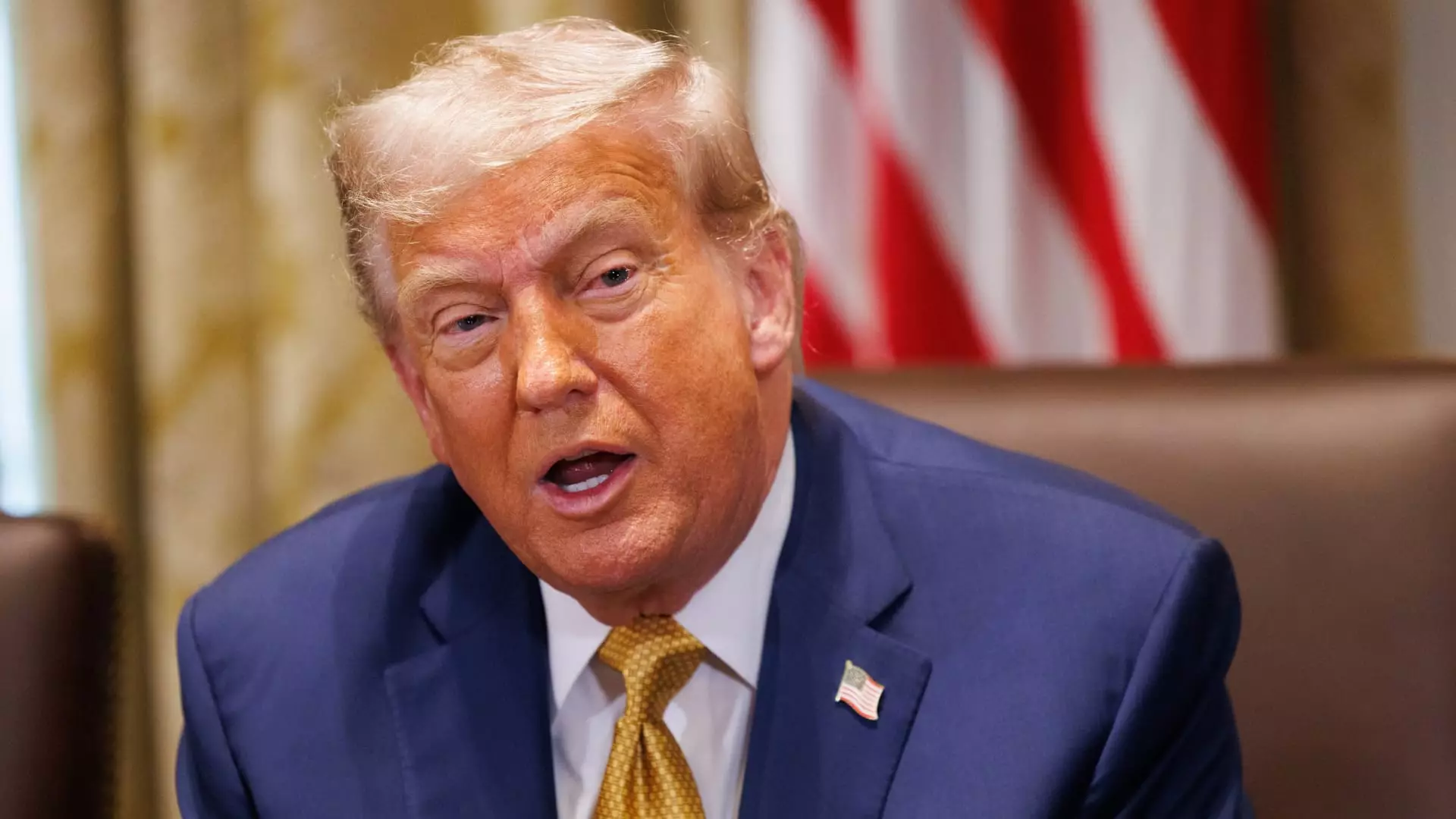The recent bold declaration by President Donald Trump to potentially impose tariffs as high as 200% on imported pharmaceuticals signals a reckless escalation in trade policy, cloaked in nationalist rhetoric. While the intention may seem rooted in protecting American industries, this threat risks unleashing chaos in an already fragile pharmaceutical supply chain. By equating tariffs with economic patriotism, Trump dismisses the complexity of global drug manufacturing, which hinges on international collaboration and specialization. Imposing such punitive tariffs could backfire, inflaming conflicts rather than bolstering domestic production. This gamble overlooks the fact that medicines are not commodities that can be simply replaced or forced into insourcing overnight; they are the result of decades of research, global supply chains, and sophisticated manufacturing processes. The attempt to wield tariffs as a tool to revive U.S. pharmaceutical manufacturing demonstrates a superficial understanding of this fragile ecosystem—one that could ultimately jeopardize patient access to vital medicines.
The Illusion of U.S. Self-Sufficiency at the Cost of Innovation
The Trump administration’s promises to incentivize domestic pharmaceutical manufacturing reflect a misguided obsession with self-sufficiency. Proponents argue that tariffs will kickstart U.S. drug production, but they ignore the deep-rooted economic realities. The U.S. pharmaceutical industry thrives precisely because it benefits from global R&D networks, diverse manufacturing hubs, and cost efficiencies that come with international division of labor—not because of protectionist trade barriers. Elevated tariffs would likely inflate drug prices, making medicines less accessible to ordinary Americans. Moreover, discouraging reliance on foreign manufacturing could hinder innovation, as research and development often require collaborative efforts that transcend borders. By attempting to force a redistribution of production without addressing structural challenges like high R&D costs and regulatory burdens, the Trump administration risks stifling the innovation engine that has made the U.S. a global leader in biotech breakthroughs.
Economic Risks and Political Hypocrisy
While Trump frames tariffs as a national security issue, the economic fallout might be far more insidious. Imposing steep tariffs on pharmaceuticals could lead to inflation in drug prices, reducing affordability for millions and placing vulnerable populations at risk. Such measures could also provoke retaliatory tariffs from trading partners, igniting trade wars that damage other sectors—agriculture, automotive, and technology—that are crucial to the national economy. Paradoxically, Trump’s rhetoric about safeguarding U.S. interests rings hollow, given that many top pharmaceutical companies have already been investing heavily in domestic manufacturing. Encouraging companies like Eli Lilly and Johnson & Johnson to expand in the U.S. is a positive development, but tariffs are not the way to achieve this. Instead, they threaten to undermine the stability of an already delicate supply chain, exacerbate market volatility, and showcase a neglect of the interconnected global economy that is essential for sustained growth.
Short-term Political Wins versus Long-term Strategic Damage
At its core, Trump’s tariff threat appears to be more about political theater than sound economic policy. It’s a ploy designed to appease nationalist sentiments and serve as a bargaining chip rather than a genuine strategy to improve U.S. industry. History shows that such protectionist measures often deliver short-term political gains but undermine long-term economic health—a lesson painfully evident from past trade wars. Imposing 200% tariffs on pharmaceuticals would likely lead to complex legal battles, decreased foreign investment, and strained diplomatic relations. Pharmaceutical companies warn that such tariffs could erode their ability to invest in innovation, reduce quality, and create shortages. For a center-right ideology that emphasizes free enterprise and pragmatic policy, risking national economic stability for political posturing appears misguided. Instead, sustainable growth hinges on smarter policies that encourage innovation and investment—not punitive tariffs that threaten to set the industry back decades.
The Real Cost to American Patients and the Future of Innovation
Ultimately, the most alarming consequence of Trump’s threats is the potential harm to American consumers and the future of medical innovation. Medicines are not just commodities—they are vital lifelines. Any disruption or cost increase caused by tariffs could delay the development of new treatments and drive up prices for existing drugs. As the industry warns, every dollar spent on tariffs is a dollar diverted from R&D—funds desperately needed for breakthrough therapies in oncology, neurology, and other critical areas. Protecting U.S. manufacturing should be about creating a balanced, supportive environment for innovation—not erecting trade barriers that risk turning America into a prescription drug importer-turned-protectorate. If the goal is a resilient, competitive pharmaceutical sector, the focus must be on fostering innovation through regulatory reform, tax incentives, and strategic investments—costly tariffs are a misguided shortcut that could cripple the very progress America seeks to safeguard.

